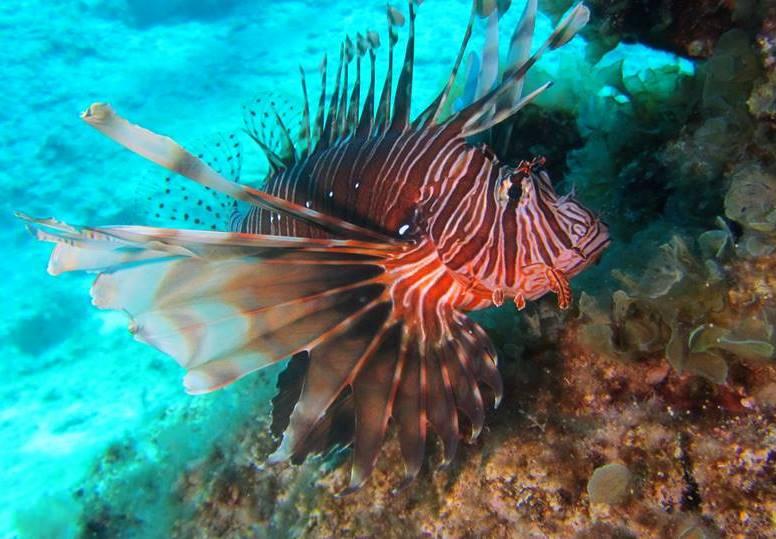Less than two dozen lionfish have been discovered in the Mediterranean Sea, but they need to be fished out immediately if the ecosystem is to be preserved, a marine biologist said.
“We know they’re pairing up in Cyprus right now. They just need to be removed—urgently,” Jason Hall-Spencer said over the phone. “It has to happen, preferably, tomorrow.”
Lionfish, native to Indo-Pacifc region, lack natural predators in the Mediterranean. They can spread extremely fast and decimate the rich biodiversity of the sea, according to Hall-Spencer, professor of marine biology at the Plymouth University, and co-author of a study that confirmed the lionfish invasion.
The lionfish probably slipped in from the Red Sea with the widening of the Suez Canal, Hall-Spencer said. Also, the Mediterranean Sea is getting warmer, making it possible for tropical species like lionfish to survive. And, as in the Caribbean years ago, over-fishing means the sea lacks predators capable of stemming the lionfish population. Though it is not clear if local predators were ever able to counter the likes of lionfish.
Lionfish are relatively small (about 2–18 inches), but are fearsome predators. They can swallow a small fish in a single bite like a canape and quickly suppress other species by eating their young. Yet lionfish themselves are a difficult prey thanks to their venomous spines.






